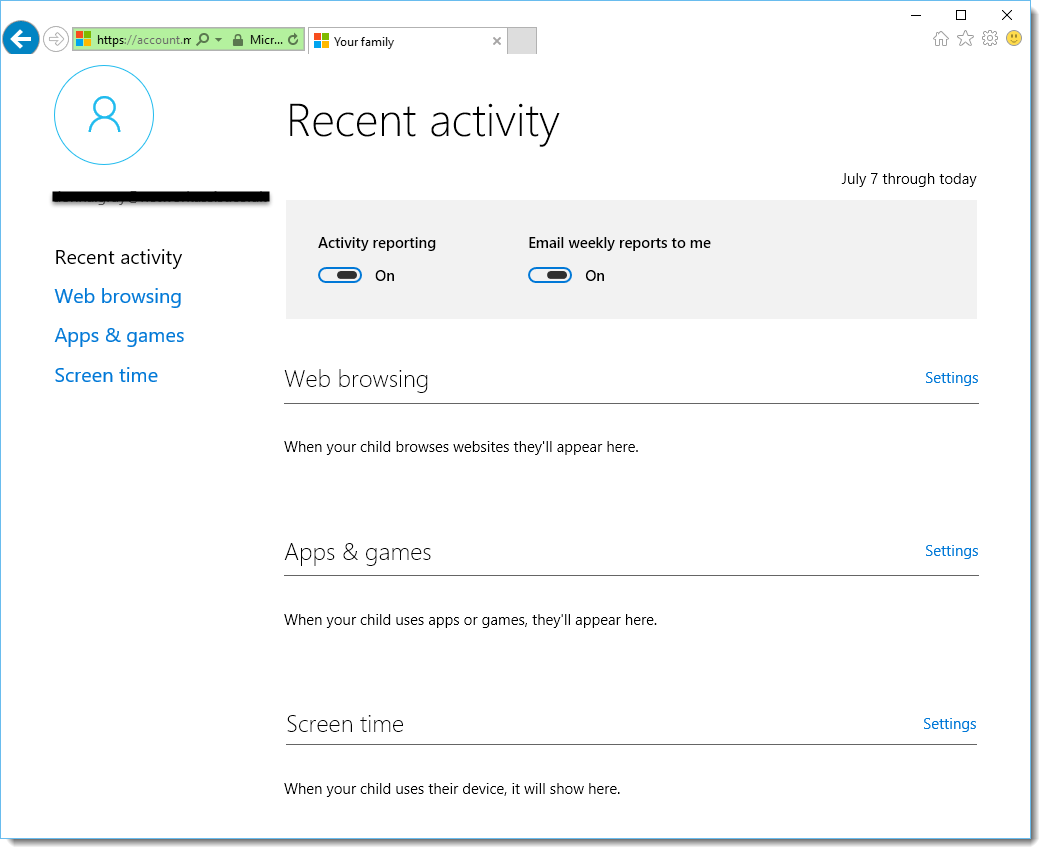There are two types of user account you can use to sign-in to Windows 10 - Local accounts and Microsoft accounts
Local Account:-
•A basic account consists of a username (and if required a password), and can only be used to log on to the computer it was created on
•You will have to sign-in into additional Microsoft services (i.e. Microsoft Store, Skype, OneDrive etc) separately
•Photos and documents won't be automatically stored in the cloud (OneDrive)
•Settings will not be synced between all your Windows 10 devices
Microsoft Account:-
•A Microsoft account allows you to sign-in with your email address and password - If you already use services such as Skype, Xbox, Outlook.com email or OneDrive then you already have a Microsoft Account and can use this to sign-in to your Windows 10 computer
•Allows you to use the same sign-in on all your Windows 10 devices
•Settings (such as desktop personalization, browser settings, internet history and favorites, language/keyboard/mouse settings) can be configured to follow you to any computer - so all devices you use will look and behave the same
•Automatically connects you to your OneDrive account, and other Microsoft services such as Outlook.com, Skype and the Microsoft Store without having to sign-in separately
•All documents/photos are automatically stored in the cloud (OneDrive) so you can easily access them on all of your devices
So in summary if you are using other Microsoft services and want to make full use of your new computer then it is better and easier to use a Microsoft account to sign-in, then you can have access to everything you need without having to sign-in separately every time you want to download from the Microsoft Store, use Skype or any other Microsoft apps
Creating a New User Account
You can create user accounts in Windows 10 by clicking Start > Settings > Accounts > Family & other people
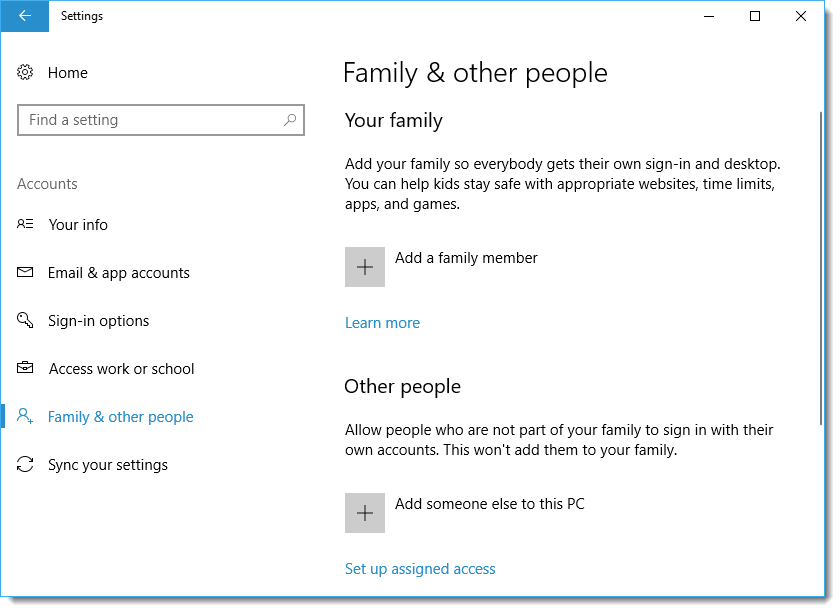
You then have two options, you can add a "family member" or "other user"
If you add a family member you can choose between child or adult - if you select child then you will be able to configure various safety settings such as blocking websites, setting time limits and choosing what apps and games they can access - you will also be able to view a activity report to monitor what they are using the computer for
If you choose Add a family member then you will need to sign-in with (or create) a free Microsoft account and password for each user
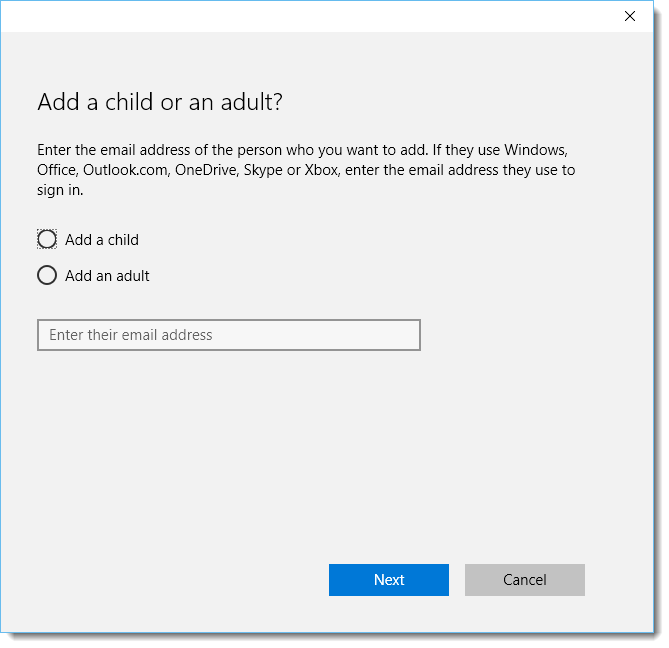
If you wish to add someone else to your computer (or you wish to add a user account without being forced to use a Microsoft Account) then click Add someone else to this PC
You can then enter the users email address (or phone number) and it will then prompt for existing password
OR
If you don't know the details or don't have a Microsoft account you can click I don't have this person's sign-in information, on the next screen you will have the option to create a new Microsoft account, or you can click Add a user without a Microsoft account to create a new Local account rather than using a Microsoft account
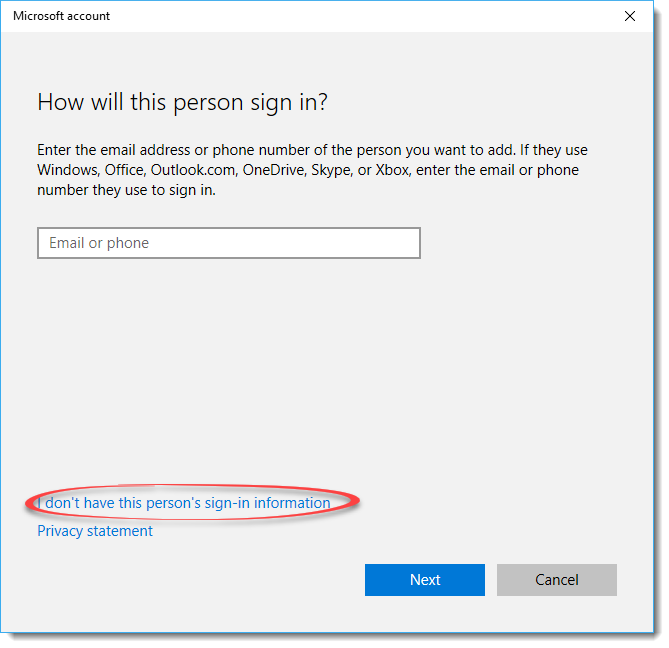
Choosing What Windows Settings Are Synced With a Microsoft Account
You can choose what Windows settings will be synced between your devices using your Microsoft account by clicking Start > Settings > Accounts > Sync your settings

Family Settings (Parental Controls)
Once you have added one (or more) family members to your computer you will then be able to access the Microsoft Family website to view activity reports and change settings
To do this click Start > Settings > Accounts > Family & other users and then click on Manage family settings online as highlighted below
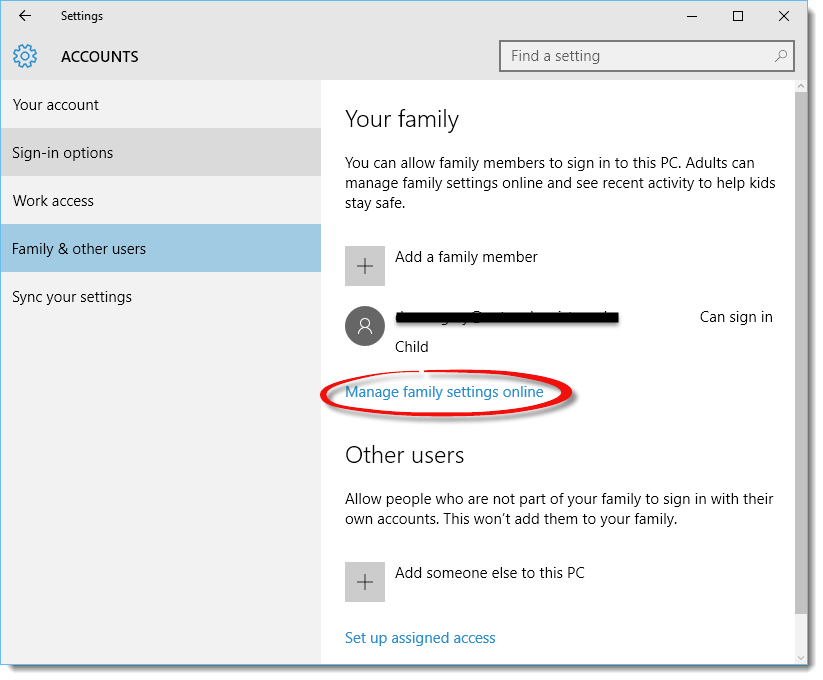
This will then take you to the Microsoft Family website where you will be asked to login using your main Microsoft account
From here you can add/remove family members, view activity reports, configure time restrictions and block websites, applications and games
